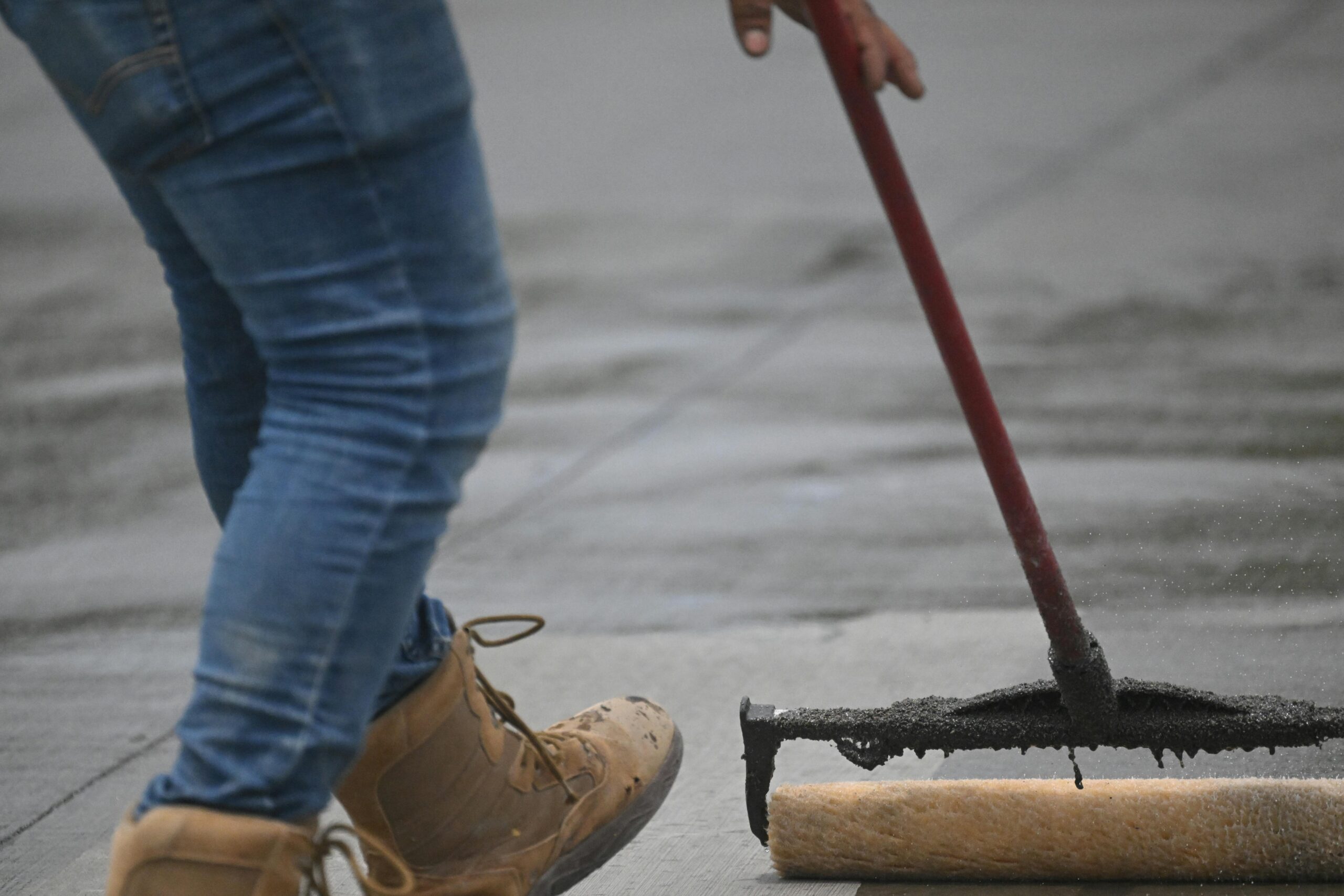Concrete is a durable and versatile building material used in driveways, patios, garage floors, and many other surfaces around our homes. However, despite its strength, concrete is porous and vulnerable to staining, water damage, freeze-thaw cycles, and deterioration from chemicals and salt. Concrete sealers provide an essential protective barrier that extends the life and maintains the appearance of concrete surfaces. In this article, we’ll explore the different types of concrete sealers available, their specific benefits, and how to choose the right one for your project.
Understanding Concrete Sealer
Concrete sealer is a protective coating applied to concrete surfaces to prevent damage from moisture, stains, and other contaminants. Without proper sealing, concrete can absorb water, oil, and other liquids that cause staining, cracking, and deterioration over time. The porous nature of concrete makes it particularly susceptible to damage in areas that experience freeze-thaw cycles, where water can penetrate the surface, freeze, expand, and cause cracking. Additionally, in regions where road salt is used during winter, unsealed concrete can suffer from significant salt damage.
When you seal garage floor surfaces or other concrete areas, you’re essentially adding a protective shield that prevents moisture and contaminants from penetrating the surface. This not only preserves the appearance of the concrete but also significantly extends its useful life, potentially saving you thousands in replacement costs down the road.
Types of Concrete Sealers: Penetrating vs Topical Sealer
There are two main categories of concrete sealers: penetrating sealers and topical sealers. Understanding the differences between these types is crucial for selecting the best concrete sealer for driveways, garage floors, or other concrete surfaces around your home.
Penetrating sealers, as the name suggests, absorb into the concrete surface rather than forming a film on top. These sealers react chemically with components in the concrete to form a protective barrier below the surface. They allow the concrete to maintain its natural appearance and texture while providing excellent protection against water, salt, and other damaging substances. Penetrating sealers are particularly beneficial for outdoor applications because they don’t create a slippery surface and are highly resistant to UV radiation and weathering. They typically last longer than topical sealers, with some premium products offering protection for up to 10 years.
Topical sealers, by contrast, form a protective film or coating on the concrete surface. These include acrylic, epoxy, polyurethane, and silicone-based products. Topical sealers not only protect the concrete but can also enhance its appearance by adding gloss or color. Many homeowners prefer topical sealers for interior applications like basement floors or for decorative concrete where the aesthetic enhancement is desired. However, these sealers may create a slippery surface when wet and typically need more frequent reapplication than penetrating sealers, usually every 1-5 years depending on the product and traffic exposure.
Benefits of Using Concrete Sealer
The concrete sealer types benefits are numerous and significant for any homeowner with concrete surfaces. First and foremost, sealers provide protection against moisture intrusion, which is the primary cause of concrete deterioration. By preventing water absorption, sealers reduce the risk of cracking, spalling, and efflorescence (white, powdery deposits on concrete surfaces).
Sealers also offer excellent stain resistance, particularly important for driveways and garage floors where oil, automotive fluids, and other chemicals can cause permanent discoloration. Experts at AskHomey recommend sealing garage floors not only for protection but also for easier cleaning and maintenance, as sealed surfaces can typically be cleaned with mild soap and water.
Another significant benefit is protection against salt damage. In regions where deicing salts are used, unsealed concrete can deteriorate rapidly due to salt penetration. The best concrete sealer for driveways in these areas would be a siloxane or silane-based penetrating sealer designed specifically for salt resistance.
Concrete sealers can also enhance the color and appearance of decorative concrete, bringing out the richness of colored concrete or exposed aggregate finishes. This aesthetic improvement, coupled with the protective benefits, makes sealing an essential step in maintaining any concrete surface.
Choosing the Right Concrete Sealer for Your Project
Selecting the appropriate concrete sealer depends on several factors including the location of the concrete, its age, its intended use, and your aesthetic preferences. For outdoor applications like driveways exposed to harsh weather conditions, a penetrating sealer is typically the best choice due to its durability and resistance to UV degradation.
For garage floors, the decision between penetrating vs topical sealer often comes down to whether you want to enhance the appearance or simply protect the concrete. If you’re looking for a glossy, easy-to-clean surface that hides stains, an epoxy or polyurethane topical sealer would be ideal. If you prefer the natural look of concrete and prioritize long-lasting protection, a penetrating sealer would be more appropriate.
The age of the concrete also matters. New concrete should cure for at least 28 days before applying any sealer. For older concrete, thorough cleaning and repairs should be completed before sealing to ensure proper adhesion and effectiveness of the sealer.
Climate considerations are also important when selecting a concrete sealer. In freeze-thaw climates, breathable sealers that allow moisture vapor to escape from the concrete are essential to prevent trapped moisture from causing damage during freeze-thaw cycles.
Conclusion
Concrete sealers offer essential protection for one of your home’s most significant investments. Whether you’re looking to seal garage floor surfaces, protect your driveway from salt damage, or enhance the appearance of decorative concrete, understanding the differences between penetrating vs topical sealer types will help you make an informed decision. The initial investment in quality concrete sealer is minor compared to the long-term benefits of extended concrete life, reduced maintenance, and preserved appearance.
For more tips and to connect with reliable home service professionals, follow AskHomey on Facebook and Instagram.



